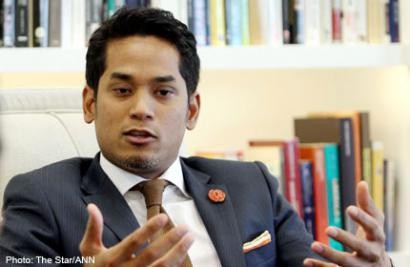Najib may gain with new party poll rules

When Umno changed its voting system in a bid to stamp out vote buying, it vastly expanded the number of those eligible to vote, from the usual 2,500 voting delegates.
This weekend, for the first time, some 146,000 members will vote to pick the party's three vice-presidents.
Their votes will be tallied at each of the 191 party divisions, and the winner will be the one who wins the most divisions.
But as the surprising election results of the party's youth and women's wings last weekend showed, this so-called electoral college system might amplify the kingmaker role of the 191 division chiefs instead.
And this could possibly give a big advantage to candidates whom Prime Minister Najib Razak favours, some party members and analysts said.
Umno's internal elections, held every three years, are closely watched because the party president traditionally becomes prime minister of Malaysia and its deputy president, the deputy prime minister.
Last weekend, while Youth and Sports Minister Khairy Jamaluddin was expected to retain his post, he surprised many by winning 189 out of 191 divisions of the youth wing. Results from two divisions were held back due to technicalities.
In the women's wing, incumbent Datuk Seri Shahrizat Jalil won by a landslide 172 divisions, with her closest opponent winning just eight divisions.
The unexpectedly huge margins of the two incumbents, both backed by party president, Datuk Seri Najib, have led to talk that the new system that was adopted in 2009, and used for the first time this year, favoured candidates on the president's wish list.
"Last time around, there were 2,500 voters, some of whom could be bought. Now the field is wider, but actually what the leadership and candidates do is to zoom in on the 191 division chiefs," said independent analyst Yahaya Ismail, who has published a book on the Umno elections.
A key difference in the new system, said some analysts and Umno members, is that each of the 191 divisions has to inform the central election committee which candidates have won in its division.
This is significant as division chiefs do not want to be seen as rebels under Umno's political patronage system and often promise to deliver votes asked for by the top leadership.
In contrast, in the previous system, the 2,500 delegates could take bribes from all the candidates and still vote for whomever they liked.
Some said critics of the new system overstate the clout of divisional chiefs.
"We cannot control how people will vote," said Wan Farid Wan Salleh, division chief of Kuala Terengganu. "Sometimes, we are just happy to ensure our own survival when we are candidates ourselves."
Critics said one way to make the voting process more democratic and less susceptible to vote buying is by eliminating the one-division, one-vote system.
Count each of the 146,000 votes together, with the winning candidate being the one who has the most votes, they said.
Already, some are asking whether Mr Khairy, also known as KJ, and Madam Shahrizat would have won as massively if all the votes cast over the weekend were revealed.
"So what is the popular vote? Did KJ and Shahrizat win or lose the popular vote?" asked Mr Syed Akbar Ali, in his popular pro-Umno blog OutSyed The Box.
reme@sph.com.sg

Get a copy of The Straits Times or go to straitstimes.com for more stories.